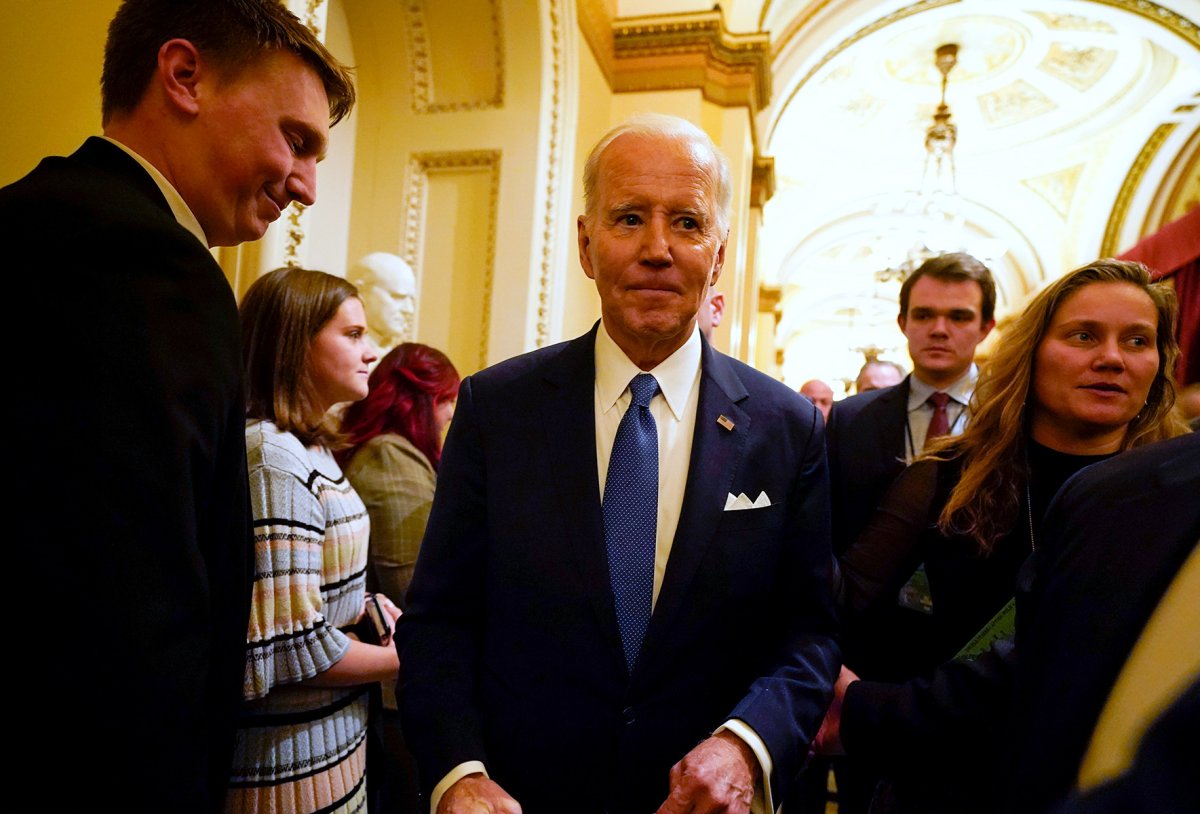President Joe Biden's plan to tax wealthier Americans is up against a new challenge thanks to the Supreme Court's decision to take up a 16th Amendment case.
On Monday, the court agreed to take up Moore v. United States, a case that could make it nearly impossible for Congress to pass a federal wealth tax, like the one Biden has floated. Only four votes are needed for the nine-member court to take up a particular case, but the court does not disclose how justices vote on petitions.
The question before justices is whether or not the 16th Amendment, which grants Congress the power to "lay and collect taxes on incomes," allows the federal government to tax unrealized gains. To answer the question, the high court will need to determine what counts as taxable income.
Although the case, brought by Charles and Kathleen Moore, challenges a Trump-era tax law provision, the petition urged justices to use it to block Democrats from delivering on a major policy proposal—a federal wealth tax—before it can be enacted and to prevent them from doing so in the future.
Ari Glogower, an expert in federal tax law and law professor at Northwestern, told Newsweek that while the court should rule narrowly on the tax in question, rather than on "speculative" tax reforms that may or may not be enacted, the case could still have significant implications for future legislation, as well as the existing income tax structure.
"A broad holding could bring unprecedented uncertainty and instability to the tax system, and it could undermine Congress's basic constitutional power to tax income as provided in the Sixteenth Amendment," Glogower said.

The litigation centers around the $14,729 that the Moores were subjected to pay in additional taxes as part of a 2017 Republican tax law that imposed a one-time "mandatory repatriation tax" for taxpayers who own at least 10 percent of a foreign corporation. The Moores, who owned 11 percent of an Indian farm-equipment company when the Trump-era provision went into effect, argue that the tax was unconstitutional because their partial ownership did not classify as "income" under the 16th Amendment.
However, citing Biden's proposal, as well as legislation introduced by Senators Ron Wyden and Elizabeth Warren, the Moores implored the Supreme Court to take up the case before a federal wealth tax could be passed by Congress.
In the petition for review, the Washington couple argued that justices had "every reason" to "resolve the pivotal constitutional question of realization now, when its judgment can inform lawmakers and stands to head off a major constitutional clash down the line."
The Biden administration has proposed implementing a 25 percent minimum tax on the richest 0.01 percent of Americans, who the White House estimates pay an average annual tax rate of 8 percent and doubling the capital gains tax rate from 20 to 39.6 percent.
"This minimum tax would make sure that the wealthiest Americans no longer pay a tax rate lower than teachers and firefighters," a February White House fact sheet reads.
But if the Supreme Court rules in favor of the Moores and limits the scope of Congress's taxing powers, Biden's plan would become dead on arrival and the decision could "provide a windfall to large corporations amounting to around one-third of a trillion dollars," according to Glogower.
"This would be a windfall on top of a windfall, since the provision at issue in this case was enacted by a Republican-led Congress as part of a reform package that already provided historic tax cuts to corporations and wealthy individuals," he said.
The debate over the constitutionality of wealth taxes is not new and neither are efforts to close the loophole that allows some rich investors to avoid paying taxes on their investments.
"How can you be taxed for something you actually haven't been given?" MSNBC's Squawk Box co-host Becky Quick asked on Wednesday. "This is maybe the value of it if you cash it out today, but if you don't cash it out today, you might have zero."
But Quick's co-anchor Joe Kernen pointed out the question may not be as black-and-white if "you've found a company... and haven't sold a share in thirty years and now are able to borrow against billions of dollars."
Kernen proposed imposing a consumption tax on those wealthy investors, but CNBC's Robert Frank argued that might not be enough to address the loophole's capacity.
"Jeff Bezos, he just bought a $5 million yacht, but he's gained 39 billion in gains on his Amazon stock this year, so it just doesn't get at that money," Frank said.
Uncommon Knowledge
Newsweek is committed to challenging conventional wisdom and finding connections in the search for common ground.
Newsweek is committed to challenging conventional wisdom and finding connections in the search for common ground.
About the writer
Katherine Fung is a Newsweek reporter based in New York City. Her focus is reporting on U.S. and world politics. ... Read more
To read how Newsweek uses AI as a newsroom tool, Click here.






